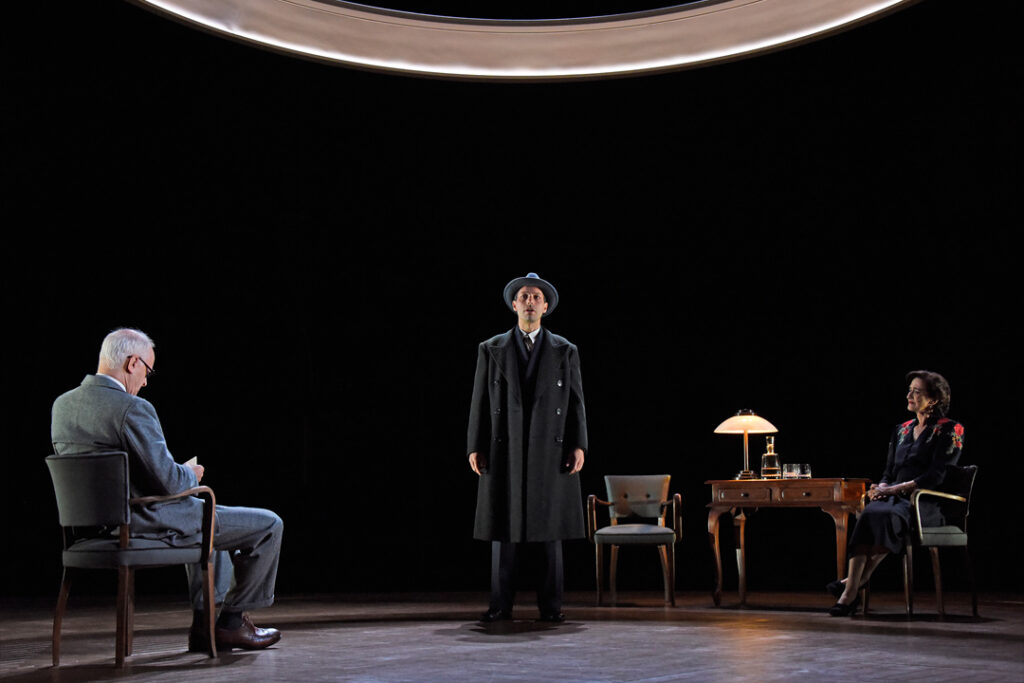Cambridge Arts Theatre, Cambridge – until 17th July 2021.
Reviewed by Steph Lott
5*****
My review in summary is, go and see this play! However I do need to preface all of my comments with a caveat: I’m not a scientist or historian and any misunderstandings or errors are entirely my own! Having said that, although this play would be especially powerful for those with an interest in quantum and nuclear physics, and their origins and history, it’s not necessary in order to go and see it and anyone who’s not a scientist or a historian can thoroughly enjoy this production. It’s wonderful in so many ways and not what I was expecting at all; I was rather afraid it might be turgid and dry which was not the case. I came away from seeing this play with so much to consider and ponder, and a desire to know more about Heisenberg, and Bohr, their relationship and what was witnessed by Bohr’s wife Magrethe. I found it very moving, so much so that at a few points I came close to welling up, which is an indication of the calibre of the cast and the quality of the production.
I don’t think this play can be easy to put on. The story is told on a very simple set with only 3 characters, who are all on the set at all times. In the wrong hands, the intricate structure of the play, the fabulous rich dialogue and interplay of the 3 characters could be lost with the wrong timing and pace. This was not the case with what I saw. A lot of this play’s power is in its stillness which lets the words, the story, the space and the emotion unfold. The cast’s diction, their timing and skill as actors meant that the story and themes can spill out for the audience to enjoy.
This play is very intense and there is a lot of detail to follow. Covering as it does events in history, complicated scientific and philosophical ideas conveyed through a lot of dialogue it could run the risk of being dull and dry. It most certainly is not that. It is an amalgam of historical fact, science, and existential musings on the nature of uncertainty, and how history could spin on the outcome of one conversation. I was struck by the skill of all involved – the director Emma Howlett, and the 3 actors Philip Arditti (Heisenberg) Haydn Gwynne (Margrethe) and Malcolm Sinclair as Bohr. Together, on a simple yet evocative set, they allow the audience to be transported into explorations of the past and alternative explanations for events. The cast and director weave together the question of what happened that destroyed an old friendship, with the origins of quantum physics, and events that took place during WW2 and the lead up to it. The morality of scientific discovery is explored, against the backdrop of war and Nazi Germany.
I found this play and its production thoroughly enjoyable and came away with so many thoughts and areas that I now want to examine further; I almost want to see the play again!

